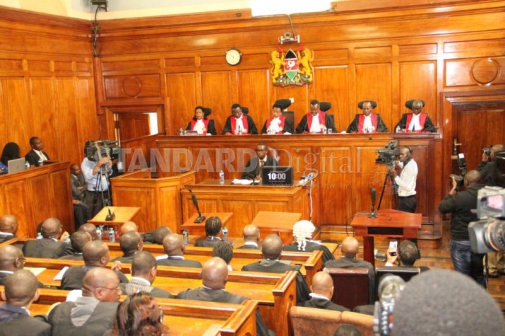×
The Standard e-Paper
Join Thousands Daily

Excellent strategies, top-notch lawyers, grit and detailed response to every allegation raised is what helped the electoral commission and President Uhuru Kenyatta win the Supreme Court battle over the October 26 repeat presidential election.
From the time the petitions by former MP Harun Mwau and human rights activists Njonjo Mue and Khelef Khalifa were filed, it was clear the Independent Electoral and Boundaries Commission and President Kenyatta would go all out to defend the outcome.